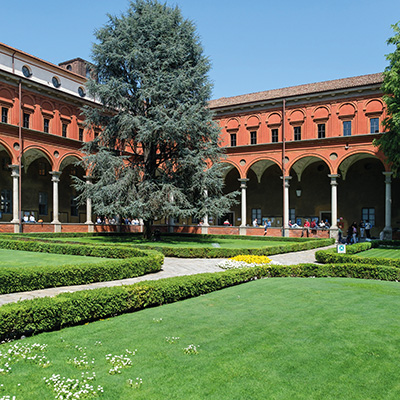The Importance of Internationalisation in Higher Education and Double Degrees - Professor Giovanni Marseguerra, Vice-Rector for Academic Programmes at Università Cattolica del Sacro Cuore

When we talk about internationalisation, we are referring to a complex and multifaceted phenomenon that involves bringing an international perspective to all activities carried out by the university. This includes teaching, research, and third-mission activities, and it requires a transversal approach that considers all dimensions of internationalisation.
How can we measure the internationalisation of a university?
Traditionally, the internationalisation of a university has been measured by factors such as the number of courses taught in English, the number of international students, and the number of students who have had an experience abroad. However, these measures can be reductionist and fail to capture the full scope of internationalisation. We should also consider the internationalisation of the faculty, the composition of the faculty, and the integration of the international perspective into all aspects of the university's activities.
How can internationalisation benefit students and faculty?
Internationalisation can have a significant impact on the academic, personal, and professional development of students and faculty. For students, internationalisation can provide them with the skills and competencies needed to succeed in an increasingly globalised job market. It can also help them develop soft skills such as flexibility and problem-solving, and expand their network of relationships. For faculty, internationalisation can provide opportunities for collaboration and research, and offer a wider perspective on their field of study.
What role does a Double Degree play in internationalisation?
A Double Degree programme can be a powerful tool for internationalisation. It provides students with a degree recognised not only in their own country but also in the country where the partner university is located. This allows them to acquire skills and competencies that they might not have had the opportunity to develop otherwise. It also widens the perspective and vision of both students and faculty and creates opportunities for collaboration and research.
How can internationalisation be integrated into all aspects of the university's activities?
As previously stated, internationalisation should be viewed as a cross-cutting dimension that encompasses all aspects of the university's operations. University services play a critical role in this regard, which necessitates the fostering of intercultural competencies among technical administrative staff who provide these services to international students.
What is the importance of formally recognising international experiences in the student's curriculum?
Recognising international experiences is essential for promoting internationalisation and providing students with the skills and competencies needed to succeed in a globalised job market. This can be achieved through initiatives such as open badges, which formally recognise the international experiences of students and enrich their curriculum. Università Cattolica is currently starting to introduce its open badges programme, as we firmly believe that international experiences significantly enhance the conventional academic experience.
What is the ultimate goal of internationalisation at Università Cattolica?
The ultimate goal of internationalisation in higher education is to prepare students and faculty for success in an increasingly interconnected world. The new strategic plan of the University has decided to further focus on internationalisation, both from the perspective of the academic offering and services provided to students, so that this global vision increasingly becomes a driver of attraction not only for international students but also for domestic ones.
As this interview has shown, internationalisation is a complex and multifaceted phenomenon that requires an integrated approach. By promoting internationalisation in higher education, we can prepare students and faculty for success in an interconnected world and promote the development of skills and competencies needed to succeed in a globalised job market.
Article featured on Worldbound, edition n.8-2023.



